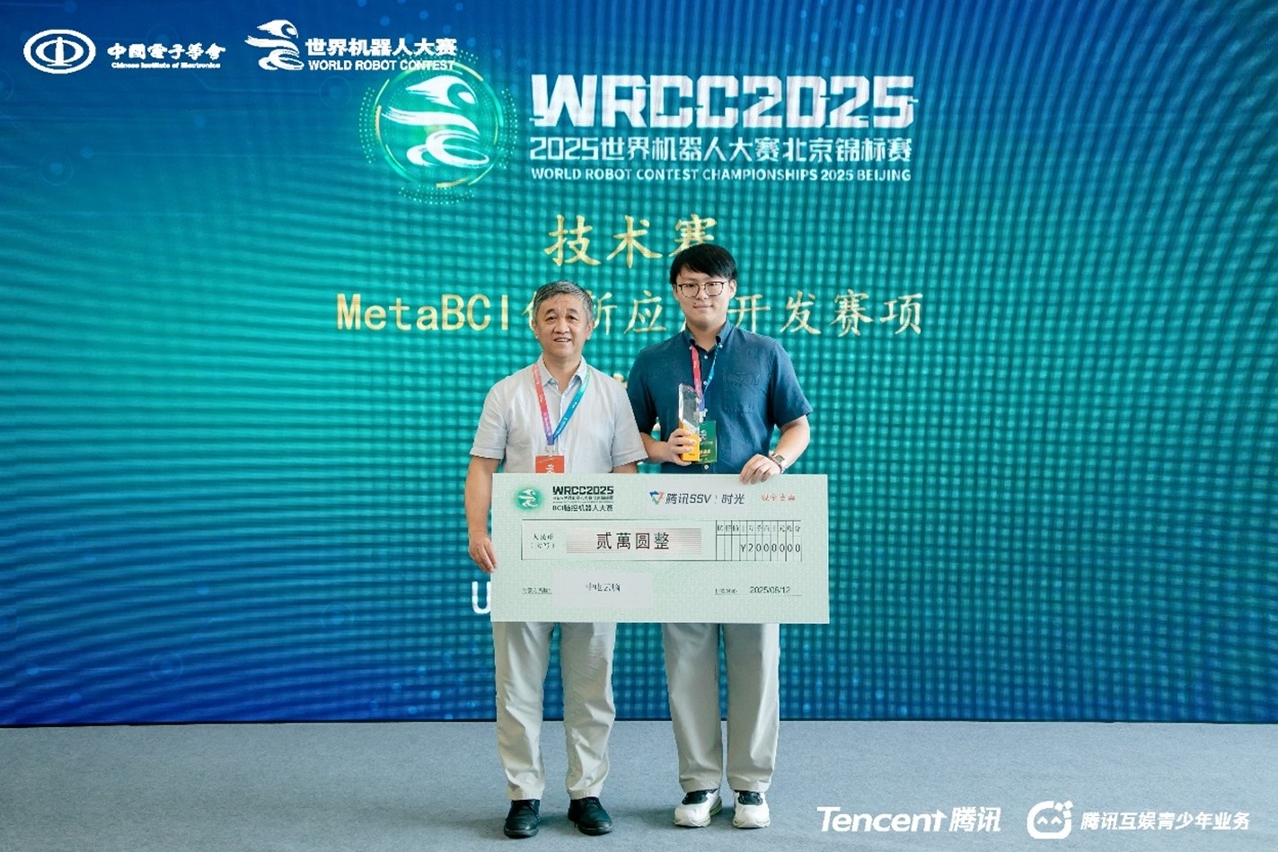 Li Haobo’s team wins the Grand Prize in the ‘MetaBCI Innovative Application Development’ category
Li Haobo’s team wins the Grand Prize in the ‘MetaBCI Innovative Application Development’ category
Li Haobo, a third-year student in the Department of Electrical and Computer Engineering in the Faculty of Science and Technology at the University of Macau (UM), led an interdisciplinary student team to compete in the ‘MetaBCI Innovative Application Development’ category at the World Robot Contest 2025—Brain-Computer Interface (BCI) Controlled Robot Contest, where they won the Grand Prize. The team’s award-winning electroencephalogram (EEG)-based system can monitor emotions and psychological states. Its innovative design and exceptional performance are testament to UM’s teaching excellence in artificial intelligence and brain-computer interface technology.
The World Robot Contest, hosted by the Chinese Institute of Electronics and first held in 2015, reached its tenth edition this year. To date, the contest has attracted over 500,000 participants from more than 20 countries and regions. Participants include outstanding teams from leading universities and research institutes worldwide, including Tsinghua University, Shanghai Jiao Tong University, Zhejiang University, Harbin Institute of Technology, Beihang University, Huazhong University of Science and Technology, the University of California, Los Angeles, and the University of British Columbia. The contest has garnered widespread acclaim and is known as the ‘Olympic Games’ in the field of robotics.
UM formed several interdisciplinary teams with 31 doctoral, master’s, and undergraduate students from various disciplines. They competed in eight categories of the contest and achieved excellent results under the guidance of Wan Feng, associate professor in the Department of Electrical and Computer Engineering in the Faculty of Science and Technology.
Li Haobo has participated in the contest for three consecutive years since 2023 and achieved outstanding results every year. This year, he led his team to win the Grand Prize. They integrated advanced learning algorithms with a user interaction model to build a personalised database of psychological state features, enabling precise recognition of users’ emotions and psychological states. The system can be seamlessly integrated into smart home systems, enabling automated control based on context awareness. It has broad application prospects in areas such as mental health monitoring and intelligent human-computer interaction.



